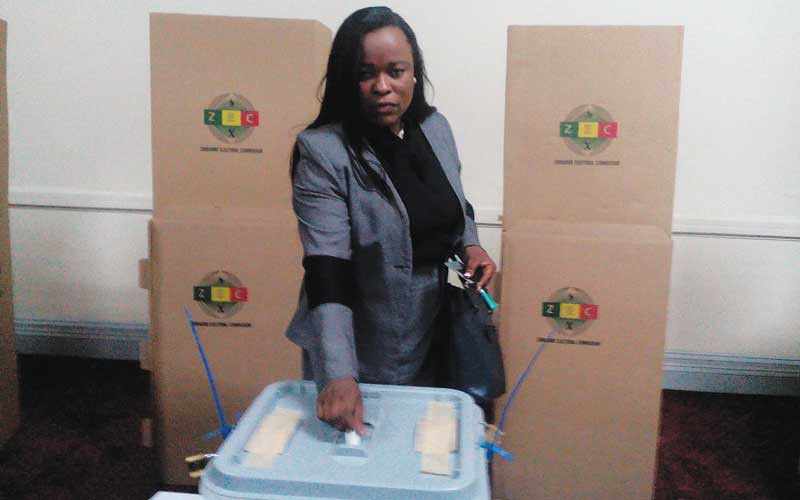
CLIMATE action, energy security and energy access policies are paving the way for energy transition and diversification of the energy mix across the African continent.
This is one of the key takeaways from a webinar hosted by energy market research firm, Rystad Energy, on April 25, 2022.
The webinar, titled “How the power mix will evolve in the next 30 years”, explored the current state of Africa’s energy mix and the role of gas, nuclear and renewable energy in improving energy access, as well as policies that are driving change across the African and global energy landscape.
With the power sector contributing heavily to greenhouse gas emissions, African economies such as Nigeria, South Africa, Kenya, Egypt and Uganda are prioritising diversifying their energy mix for decarbonisation and energy security.
At the heart of these developments are government policies that also aim to improve access to energy, with sub-Saharan Africa having nearly two thirds of the world population without electricity access.
Nigeria has pledged to achieve carbon neutrality by 2060 by increasing the deployment of renewables and integrating gas in its energy mix, while South Africa is in the process of developing its energy transition roadmap.
Coal demand is starting to slow down, but again will peak in 2027 and start to decline again as renewables penetration increases.
Countries like South Africa need to move away from coal to reduce emissions.
- Chamisa under fire over US$120K donation
- Mavhunga puts DeMbare into Chibuku quarterfinals
- Pension funds bet on Cabora Bassa oilfields
- Councils defy govt fire tender directive
Keep Reading
Given that demand continues to grow rapidly in Africa, the continent needs to ensure that in meeting the demand it does not compromise the emissions.
As such, the role of gas in ensuring there is adequate baseload power will continue to increase.
However, solar PV will outpace all the other energy sources to account for 40% of the continent’s power generation by 2050.
Up to US$10 trillion will be needed to expand the portfolio of solar, while US$6 trillion will be needed to build wind energy projects.
While the southern part of Africa has the maximum solar potential, wind is central in the northern part. To ensure the potential of solar is maximised, batteries will be required to address the intermittence.
Large investments in transmission infrastructure will also be required. More focus has been put on solar development at the expense of transmission networks.
With solar taking two years to develop and the development of transmission taking up to 10 years, governments need to address the gap in infrastructure development.
Africa is also increasingly seeing a number of countries wanting to stabilise their energy supply by developing nuclear energy facilities.
While South Africa is the only country in Africa currently with an operational nuclear power plant, the southern African economy will join Kenya, Uganda and Ghana to develop new nuclear facilities in the late 2030s.
Ghana is expected to select the site at which a one gigawatt (GW) nuclear energy facility will be constructed by the end of 2022, while South Africa will expand its nuclear output to 2,5GW by constructing the Thyspunt project as Egypt finalises its licence for the El Dabasa NPP nuclear plant which is expected to come online by 2028.
Nigeria should develop and bring online the Itu Geregu nuclear facility by 2025.
At the same time, with Europe struggling with energy reliability in the wake of the bloc wanting to reduce its reliance on Russian fossil fuels over the Ukrainian war, Europe can take advantage of the good solar potential which north Africa has.
There is need for north Africa and Europe to invest heavily in interconnections of power systems so that north Africa can supply to Europe.- Nicholas Nhede
Whistleblower Protection Bill lacks adequate funding
STAKEHOLDERS feel there is need for adequate resources to fully implement the long-awaited Whistleblower Protection Bill approved by Cabinet in March.
This came out during a Transparency International Zimbabwe (TIZ) consultative workshop on whistleblower protection that brought together journalists and legal practitioners, among other stakeholders recently in Bulawayo.
The country should learn from the Namibian experience, where a lack of funding is stalling implementation of the Namibian Whistleblower Protection Bill of 2017.
Namibia’s Whistleblower Protection Bill is ranked one of the best internationally in terms of content, but the Bill has not yet been fully implemented due to financial constraints, five years after enactment.
Whistleblowers are an important part of society as they expose corruption, which is one of the violators of human rights.
Those enacting the Bill must work with communities so that there is a better understanding of what and who exactly a whistleblower is to encourage full appreciation from communities.
It is important to conscientise whistleblowers who include journalists to promote balanced reporting.
The Bill should shield whistleblowers and those close to them to ensure they are not victimised when they expose corruption.
There must be a high level of transparency and accountability in institutions.
Victimisation of whistleblowers in any form may result in hesitancy around reporting on issues of corruption.- Community Podium
Resource-rich Hwange sinking under maladministrationONE of the oldest mining towns, Hwange, is the country’s mining hub boasting coal mines that produce an estimated 90 000 tonnes of coal per month.
However, the economy and infrastructure in the town does not reflect the abundant resources the area is endowed with.
The mining industry in the town targets high returns as it aims to achieve a US$12 billion industry by 2030 and at the same time, turning the country’s economy into an upper middle-class economy in line with government’s mantra.
Mining activities are supposed to have resulted in good infrastructure and excellent service delivery from local authorities, at the very least.
The snail pace of development in the area can be blamed on incompetence of local authorities. The town has one district hospital which has remained incomplete for years and its roads have become an eyesore mainly due to the mining activities.
Councillors should rectify this problem of underdevelopment.
Hwange district is run by three local authorities namely the Hwange Local Board (HLB), Hwange Rural District Council (RDC) and Victoria Falls Municipality. Hwange Colliery Company Limited (HCCL) has jurisdiction in a coal concession that is run by seven councillors under HLB.
The seven councillors in the concession are not serving their purpose as far as service delivery is concerned.
Service delivery issues are under the jurisdiction of HCCL, Zimbabwe Power Company (ZPC) and National Railways of Zimbabwe (NRZ).
What is even more shocking is that Hwange RDC collects rates in wards that fall under HLB. Councillors in the concession area are just councillors by title.
The set-up is very abnormal as HLB pays councillors in wards where Hwange RDC collects rates.
HLB has 14 wards, of which 1-7 administrative wards under the board are the only ones receiving devolution funds, while the other seven fall under HCCL, NRZ and ZPC concessions.
Subsequently, the unequal distribution of devolution funds is undermining and frustrating councillors in wards that are not receiving devolution funds.
Residents have petitioned Parliament to address the situation, but to date, no solution is in sight.
The mismanagement of the town is giving rise to voter apathy as residents struggle to see any positives from the elected officials.
The ZPC residential area is in ward 15, Hwange Colliery Company is in control of wards 8, 9, 10,11 and 12 and NRZ has ward 14.
These private authorities have their own policies that may not allow HLB to implement devolution projects.
An amalgamation of private authorities into one administrative local authority may help in the development of the town.- Community Podium











